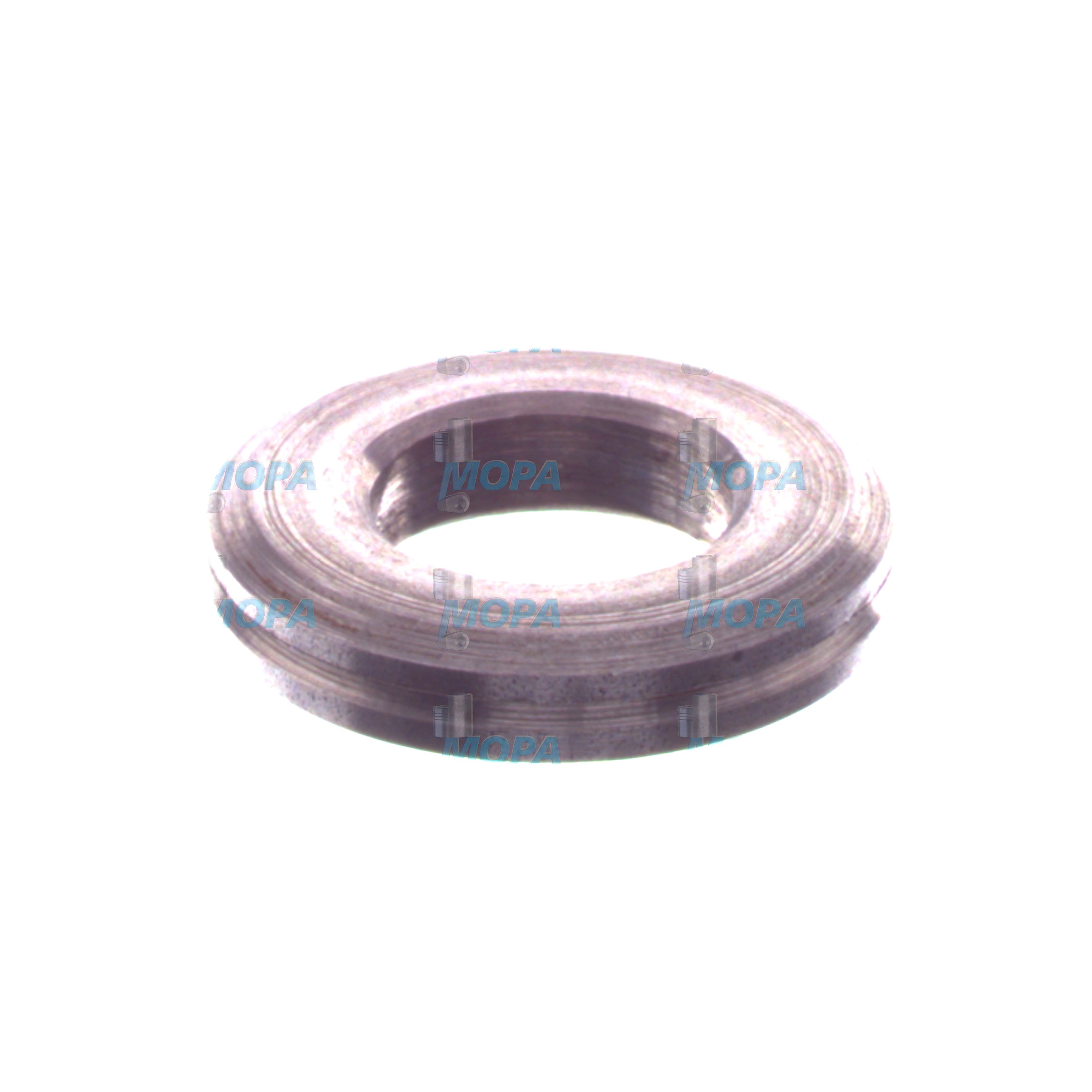PLAIN WASHER Washers for Marine and Diesel Engines
Washers are small but decisive machine elements that sit under bolt heads and nuts to stabilize joints across the entire engine. In heavy-duty marine engines, high-speed diesel engines, and gas engines, washers—especially the PLAIN WASHER—spread clamping forces, protect mating surfaces, and help retain torque under vibration and thermal cycling. As a category, washers include flat spacers and shims used throughout the powertrain: cylinder head and block interfaces, exhaust manifolds, turbocharger brackets, pump flanges, gearbox covers, and auxiliary equipment. Their consistent thickness, hardness, and surface characteristics make them essential for predictable bolted-joint behavior and long service intervals.
Technical function of PLAIN WASHER in marine and diesel engine assemblies
A PLAIN WASHER provides a flat, stable bearing surface between a fastener and a component. In a diesel engine, it distributes the preload from a tightened bolt over a larger area, reducing surface pressure and preventing material embedment, fretting, or galling. In a marine engine, it helps maintain joint integrity against shock loads, torsional vibration, and hull-induced movement. Correctly specified washers also act as precision shims to set axial clearances and component stand-off, supporting repeatable alignments in housings, bearing caps, and cover plates.
During tightening, the friction conditions at the bolt head or nut face strongly influence the achieved preload. A PLAIN WASHER with a controlled finish and hardness stabilizes the friction coefficient, making torque-to-tension relationships more consistent. This improves clamp load accuracy, which directly affects gasket sealing, flange flatness retention, and long-term joint stability. In applications near hot exhausts or charge-air systems, washer material and heat treatment safeguard against creep and relaxation, reducing the need for retorque. Specifying the right PLAIN WASHER OEM parts helps maintain designed preload through thermal cycles and pressure pulsations common in engines at sea.
Key functional contributions of washers in engine service include precise load distribution under high-strength fasteners (e.g., property class 10.9/12.9 bolts), surface protection of softer materials (aluminum, cast iron), prevention of local indentation, and mitigation of loosening when combined with approved locking methods. Standards such as ISO 7089/7090 (or DIN 125/DIN 9021 equivalents) define inner/outer diameter geometry, thickness, and hardness (e.g., HV 200–300 for steel) to match the mechanical demands of structural joints in engines.
At-a-glance characteristics and advantages of washers
· Distribute clamp load and reduce surface pressure.
· Stabilize friction for predictable torque-preload results.
· Protect mating surfaces from fretting and indentation.
· Serve as precision shims to set clearances and offsets.
· Support sealing performance at flanged joints.
· Resist heat, vibration, and thermal cycling in engines.
· Available in steel, stainless, and coated variants for corrosion control.
· Conform to ISO/DIN dimensions for interchangeability and fit.
Why washers matter for engine reliability and service life
Reliable bolted joints underpin engine uptime. When a PLAIN WASHER is matched to the fastener grade and joint material, preload remains within the intended range, preventing gasket blow-by, flange distortion, and movement that can cause leaks or fatigue. Conversely, using worn, too-soft, or dimensionally inconsistent washers risks preload loss from embedment or settling. The consequences include oil and coolant leaks, exhaust gas leakage, hot-spot formation on sealing faces, and progressive loosening under vibration. Surface fretting can propagate cracks in housings; mis-set clearances from incorrect shim thickness can alter bearing preload or gear backlash, increasing wear and temperature. Across long voyages or demanding duty cycles, robust washer performance directly supports safety, fuel efficiency, and planned maintenance schedules.
Advantages of OEM spare parts suitable for washers
Choosing OEM spare parts suitable for washers ensures every critical detail—material grade, hardness, thickness tolerance, and surface finish—is controlled and traceable to the specification of the diesel or gas engine manufacturer. This precision translates into consistent clamp loads, fewer retightening events, and lower risk of joint-related failures.
Compared with unverified alternatives, OEM spare parts suitable for PLAIN WASHER applications deliver measurable value:
· Consistent dimensions for predictable fit and preload.
· Verified hardness to resist embedment under high clamp loads.
· Controlled surface finish for stable friction and torque accuracy.
· Material options (e.g., zinc-flake coated steel, A2/A4 stainless) to match corrosion environments.
· Compatibility with mating fasteners and flanges specified by the engine maker.
· Reduced rework, fewer leaks, and longer service intervals—protecting budget and uptime.
· Compliance with engine documentation for safe, auditable maintenance.
For shim stacks and alignment tasks, OEM spare parts suitable for washers provide precise thickness steps and flatness, enabling accurate setup of bearing caps, pump covers, and accessory brackets. This dimensional fidelity preserves performance targets and minimizes wear from misalignment.
PLAIN WASHER OEM parts: materials, standards, and best practice
In engine rooms exposed to salt, heat, and oil mist, material and coating selection is critical. Common specifications include high-strength carbon steel washers hardened to HV 200–300, stainless steels for corrosion resistance, and coatings such as zinc-flake or phosphate to stabilize friction and mitigate galvanic effects. Following ISO 7089/7090 or DIN 125/9021 geometries ensures proper bearing area and clearance to the bolt shank. Best practice pairs the washer to the fastener property class and uses clean, undamaged seating faces; mixing soft washers with high-strength bolts is a frequent root cause of preload loss. Where locking is required, coordinate the PLAIN WASHER with the approved locking method for the specific joint design.
MOPA as your partner for OEM spare parts washers
MOPA is an experienced and reliable partner for OEM spare parts for washers across diesel and gas engines. We combine rapid sourcing with stringent quality controls to deliver the right PLAIN WASHER components for marine engine and power generation fleets. Our procurement and logistics processes prioritize speed, documentation integrity, and transactional security—so purchasers and superintendents can act decisively and keep assets online. From single-line items to complete overhaul kits, MOPA provides consistent quality and technical clarity across the OEM parts portfolio.
Conclusion
Washers—especially the PLAIN WASHER—play a decisive role in distributing load, stabilizing torque, and protecting surfaces in marine and diesel engines. Specifying OEM spare parts suitable for washers secures performance, reliability, and service life while controlling maintenance costs and downtime. With MOPA, you gain a focused partner for fast, secure access to the right OEM parts for demanding engine applications.





